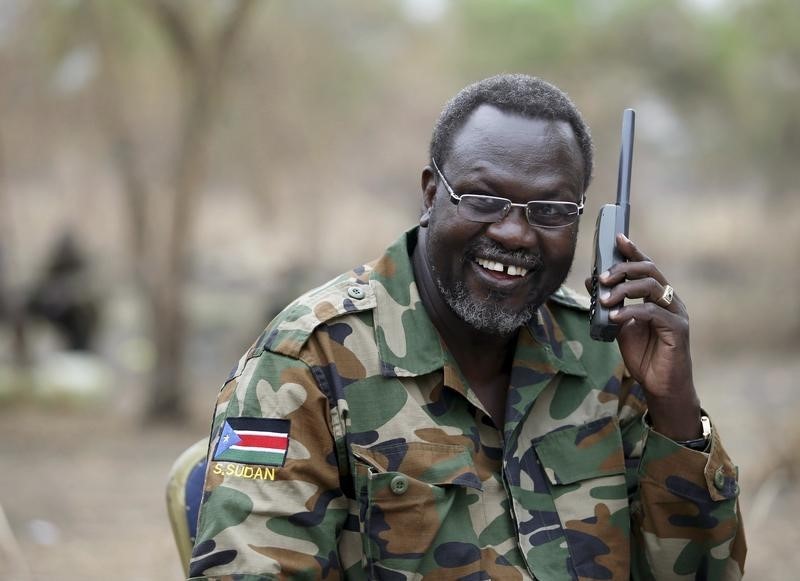By Michelle Nichols
UNITED NATIONS (Reuters) - South Sudan's exiled opposition figure Riek Machar "is not dead politically," United Nations peacekeeping chief Herve Ladsous said on Friday as the country's vice president accused Machar of attempting to overthrow President Salva Kiir in July.
Political rivalry between Kiir and Machar sparked a civil war in 2013 and, while the pair signed a shaky peace deal a year ago, fighting has continued and Machar fled the country after the eruption of violence in July. He is now in Khartoum.
Senior diplomats met to discuss South Sudan on Friday on the sidelines of the annual U.N. gathering of world leaders. The United States, China, Britain and Norway were among those at the meeting hosted by U.N. Deputy Secretary-General Jan Eliasson.
"Clearly (Machar) is, I think somebody said in the meeting just now, he is not dead politically by a long way, he's there, I mean he's out of the country, but he does represent a very important element of the South Sudanese community," Ladsous told reporters.
Last month Kiir fired six ministers allied to Machar. A U.N. statement summarizing Friday's meeting stressed the need for inclusivity in the South Sudanese political process.
The United States has said it does not believe that Machar, who was vice president until he fled, should return to his former position in the government given the continuing instability in the country.
During a visit by the U.N. Security Council to South Sudan earlier this month, diplomats said Kiir told them that Machar was welcome to return to the country if he wanted to run for office during elections in 2018.
After Machar fled the country, Kiir replaced him with Taban Deng Gai, who broke ranks with Machar said he was taking over the opposition SPLM-IO. A former minister of mining, Deng Gai was a chief negotiator on behalf of the SPLM-IO in the talks that led to last year's peace deal.
Deng Gai addressed the U.N. General Assembly on Friday and said South Sudan was "steadily implementing" the peace deal. He accused Machar of attempting to overthrow Kiir during deadly violence in the capital Juba in July.
Ladsous said the South Sudanese government had not yet improved cooperation with the world body on the deployment of more peacekeepers.
In the wake of the fighting in July, the 15-member Security Council last month authorized a regional protection force as part of the U.N. peacekeeping mission and threatened to consider an arms embargo if Kiir's government did not cooperate or stop hindering the movement of peacekeepers.
"There have been contacts at various levels with the government, with the authorities of South Sudan but this has not really translated into significant progress on the ground," Ladsous told reporters.
Deng Gai told the General Assembly that the government needed to "engage more with the U.N. on the details."
"This is in order to avoid derailing national healing and reconciliation. External intervention often affects negatively internal reconciliation," he said.
